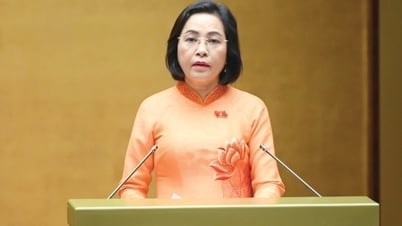The Bangkok Post on May 22 quoted an informed source as saying that the Election Commission of Thailand (EC) is considering a complaint filed by MP Ruangkrai Leekitwattana of the pro-military Palang Pracharath Party against Pita Limjaroenrat, the leading candidate for the Thai prime minister. Pita's Forward Party and seven coalition parties won 313 out of 500 seats in the lower house of parliament in mid-May and are in talks to form a government.

Mr. Pita Limjaroenrat, who has the opportunity to become Prime Minister of Thailand
Mr Ruangkrai said Mr Pita owned 42,000 shares in the media company iTV but did not report this to the National Anti-Corruption Commission before taking office as an MP in 2019. Thai law prohibits shareholders of media companies from becoming MPs. Mr Pita explained that the assets belonged to his father and were transferred after his father died. He also said he explained this to the EC before taking office after that year's election.
The Bangkok Post source said the EC cannot invoke the Basic Law on Election of MPs in Mr. Pita’s case because Section 61 of the law stipulates that the commission can only disqualify a candidate when the election is not over. Since the election is over, the EC no longer has the legal basis to disqualify a candidate or elected MP.
However, Section 82 of the constitution states that the EC can disqualify an individual from parliament if there is a ruling from the Constitutional Court. However, as Mr Pita has not yet officially taken office after the recent election, the EC must wait for that to happen before it can take the case to the Constitutional Court.
In the meantime, Mr Ruangkrai said he would submit further documents to back up his claims. The lawsuit also raises questions about whether the MPs’ standing in the 400 constituencies could be invalidated, with Mr Pita, who approved their candidacies, disqualified.
In another case, lawyer Theerayuth Suwankaesorn filed a complaint with the EC, calling on the commission to ask the Constitutional Court to consider whether the Forward Party had harmed the monarchy by announcing plans to reform the royal defamation law.
“The party’s plans could undermine and damage the country’s key institutions,” Theerayuth told reporters on May 22. An unfavorable ruling could lead to the dissolution of the Forward Party, he said. However, the Bangkok Post reported that the complaint has not yet been formally accepted by the EC.

Mr. Pita Limjaroenrat (fourth from left) and leaders of parties in the coalition during the announcement of the agreement in Bangkok on May 22.
The Forward Party's pledge to amend the royal defamation law - which punishes critics of the king and members of the royal family - is seen as a sticking point between the coalition parties as they seek to form a majority government.
The coalition signed an agreement on May 22 to draft a new constitution, end business monopolies, allow same-sex marriage and other issues but did not mention the law against defamation of the royal family, according to Reuters.
To become Thailand’s prime minister, a candidate must receive the support of a majority of the 500 members of the House of Representatives and 250 senators, all appointed by the military government, representing a minimum of 376 votes. Therefore, Mr. Pita will have to attract other parties to the coalition or convince at least 63 senators to support him.
Source link



![[Photo] Many people in Hanoi welcome Buddha's relics to Quan Su Pagoda](https://vphoto.vietnam.vn/thumb/1200x675/vietnam/resource/IMAGE/2025/5/13/3e93a7303e1d4d98b6a65e64be57e870)
![[Photo] President Luong Cuong awarded the title "Heroic City" to Hai Phong city](https://vphoto.vietnam.vn/thumb/1200x675/vietnam/resource/IMAGE/2025/5/13/d1921aa358994c0f97435a490b3d5065)
![[Photo] President Luong Cuong attends the inauguration of the international container port in Hai Phong](https://vphoto.vietnam.vn/thumb/1200x675/vietnam/resource/IMAGE/2025/5/13/9544c01a03e241fdadb6f9708e1c0b65)

![[Photo] Prime Minister Pham Minh Chinh receives Ambassador of the French Republic to Vietnam Olivier Brochet](https://vphoto.vietnam.vn/thumb/1200x675/vietnam/resource/IMAGE/2025/5/13/f5441496fa4a456abf47c8c747d2fe92)



























































































Comment (0)